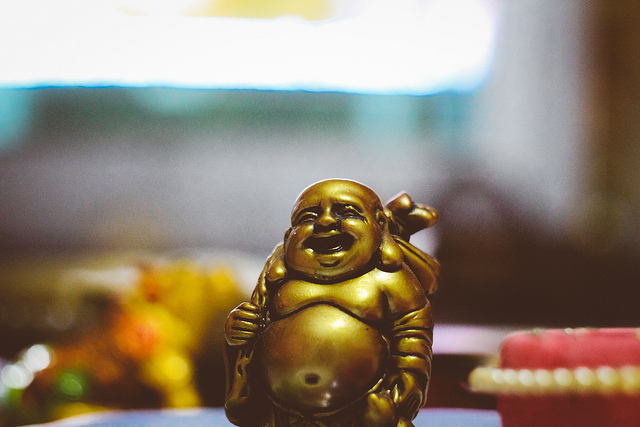I’ve been wildly happy and wildly unhappy in my life, and you’d better believe I like being happy better.
As such, I’ve spent a great deal of time not just figuring out what’s made me unhappy—which is the common prescription in today’s society for “fixing” ourselves—but reflecting on the things that have made me truly joyful all the way to the center of my bones.
Before I go any further, I should define the word “happy” as I understand it.
Miriam Webster says:
happy, adjective hap·py \ˈha-pē\: feeling pleasure and enjoyment because of your life, situation, etc., showing or causing feelings of pleasure and enjoyment, or pleased or glad about a particular situation, event, etc.
I say it’s more than that.
It is a feeling that, despite the mandatory bumps in the road, all will be well. It is the belief that we are loved, that we are important and that there is meaning to our existence. It is the knowledge that we are resilient enough to weather the bad times, and mindful enough to enjoy the good ones.
So how do we achieve this state of being?
There are many paths to happiness, as varied and personal as the hairs on our head. Some find religion, some philosophy, some people find charity or art or family. But one thing every truly happy person has in common, is gratitude.
But how do we have gratitude when things are really awful?
More than a state of mind, gratitude is a skill that we can learn, but ironically, it often takes a lot of bad to help us appreciate the good.
When I was a kid, I had nothing but privilege. Good schools, more food than I knew what to do with, an intact family and a nice home—not to mention the fact that I was also a white American. But I was completely and utterly miserable.
My state of mind was not uncommon. Depression in white middle class America is rampant. It took losing it all for me to appreciate what I’d had.
We don’t have to subject ourselves to drug abuse, homelessness or dysfunctional relationships like I did to learn gratitude, though. There are some practical, effective ways we can all bring gratitude to the forefront of our everyday lives, no matter what our circumstances are, good or bad, and learn to make it a focal point in the earnest pursuit of that truly American dream: happiness.
First, and I think most important, is the idea of being of service.
There is always a way to give back, whether by donating our time (I love the website Volunteer Match, which helps match your interests to volunteering opportunities near you), or by doing little things: offering a sympathetic, nonjudgmental ear to a friend, holding a door open, paying for the person’s coffee behind you in line, making soup for an overwhelmed mom-friend or gathering clothes, blankets, and appliances we no longer use and bringing them to the Salvation Army.
Get creative. The list is endless.
There is no better way to feel gratitude than to inspire the feeling in someone else.
Next, because gratitude is a skill, we can actively practice it. This might feel weird at first, but it soon becomes second nature. It’s kind of like saying grace constantly throughout the day.
Thank you sky, for being so abundantly blue.
Thank you legs, for turning the wheels of this bicycle.
Thank you dog, for your soft fur.
Thank you bed, for letting me lie down.
You get the point. No breath is too small, no heart beat too insignificant, that we can’t give thanks for it.
Third, and perhaps most counterintuitively, we can acknowledge our pain, our hurts and our disappointments, allow ourselves to feel them, and ask for help.
Though we can foster a positive attitude, we can’t fake a sunny disposition. Life is hard. Some days really suck. If we reach out and talk about it—to a friend, a teacher or even sometimes a stranger, we will usually be surprised at the comfort that awaits us. That comfort will invariably fill us with gratitude.
Being happy right now is not always possible, but cultivating the attitudes and behaviors that will allow happiness into our lives is. Becoming proactively grateful is a wonderful place to start.
Relephant:
8 Signs of Emotional Dysfunction which Disturb Inner Peace.
Author: Erica Leibrandt
Editor: Catherine Monkman
Photos: carrotmadman6/Flickr









Read 0 comments and reply